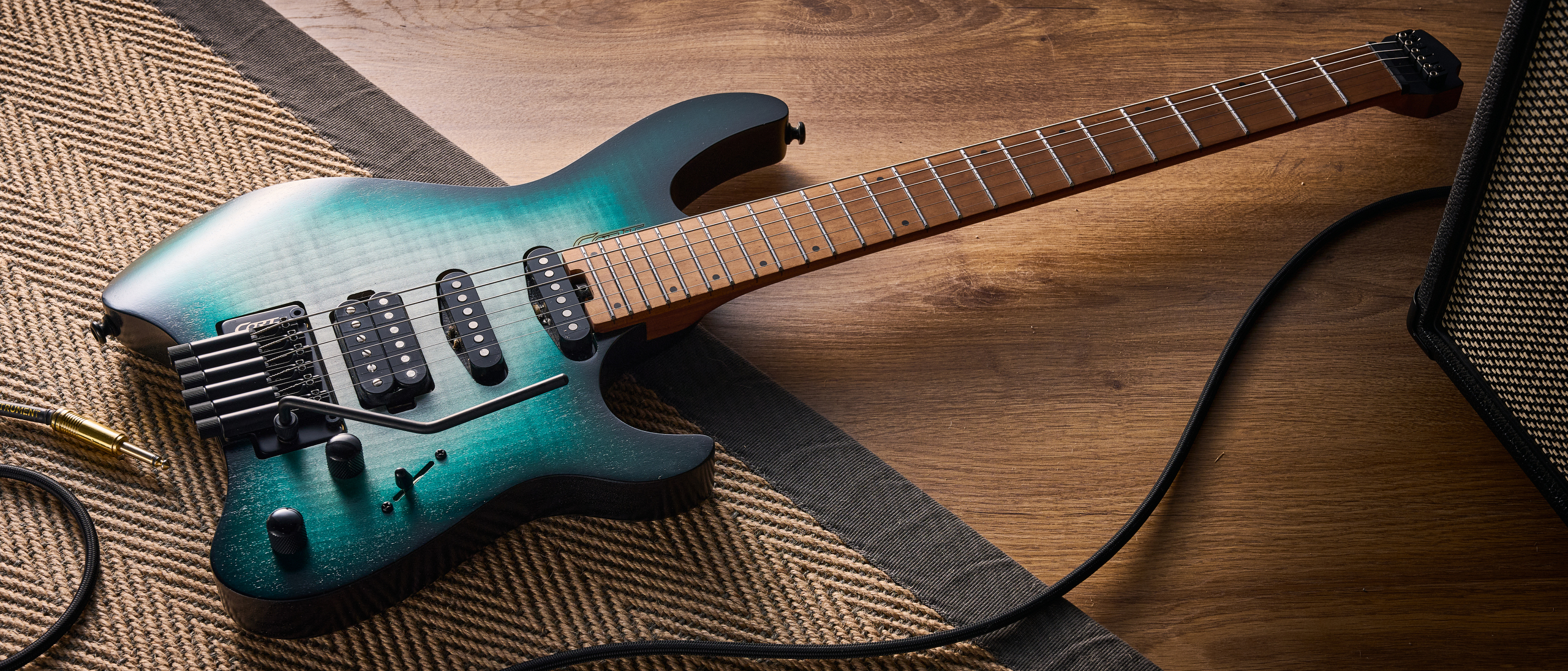Avenged Sevenfold's Synyster Gates and Zacky Vengeance Discuss Their Hard Rock-Influenced New Album, 'Hail to the King'
All the latest guitar news, interviews, lessons, reviews, deals and more, direct to your inbox!
You are now subscribed
Your newsletter sign-up was successful
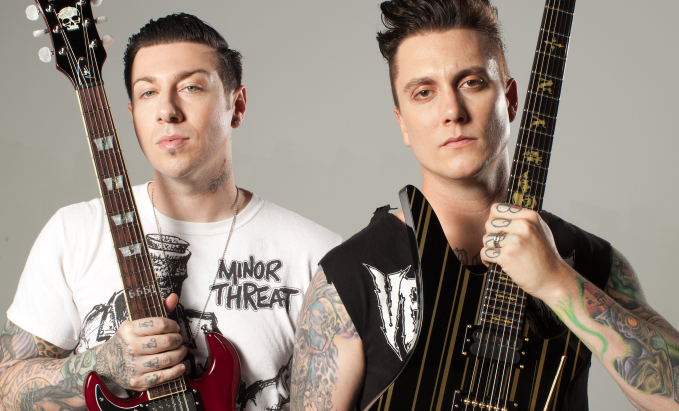
This is an excerpt from the October 2013 issue of Guitar World magazine. For the rest of this story, plus a Dimebag Darrell poster and features on Mick Mars, Buddy Guy, the Mayhem Festival, Yngwie Malmsteen, a guide to 15 fantastic electric guitars for less than $500 and more, check out the October 2013 issue at the Guitar World Online Store.
Hail, Hail, Rock and Roll: After a yearlong hiatus, Avenged Sevenfold come back stronger than ever with Hail to the King, their new hard rock–influenced album.
“I gotta admit, today is a little nerve racking,” Zacky Vengeance says, speaking to Guitar World on a hot July afternoon in Los Angeles.
The guitarist is preparing to head to rehearsal with his bandmates in Avenged Sevenfold, something he has done hundreds of times over their 14 years together. It wouldn’t be cause for anxiety except that, this time, things are a little different. According to Vengeance, Avenged haven’t performed live in more than a year, the longest such stretch of their career.
But with a new album in the can—their eagerly anticipated sixth full-length, Hail to the King—and a world tour in the works, today is, he says, “day one of pretty much starting the cycle again. We’re going straight from doing not a whole lot of anything to going at it full force.”
But while Vengeance is eager to get back to work with Avenged, he admits that the extended break was much needed. “It was kind of a planned thing,” he says. “We needed some time to refresh, regroup and look back on everything we’ve been through.” And indeed, Avenged Sevenfold—singer M. Shadows (Matt Sanders), guitarists Vengeance (Zachary Baker) and Synyster Gates (Brian Haner, Jr.), bassist Johnny Christ (Jonathan Seward) and new drummer Arin Ilejay—have been through a lot, to put it mildly. It could be said that the band’s recent collective experience has been something of, to paraphrase Charles Dickens, the best of times, and the worst of times.
All the latest guitar news, interviews, lessons, reviews, deals and more, direct to your inbox!
Their lowest point is now an indelible part of the band’s narrative. At the tail end of 2009, while they were enjoying some time off to celebrate the holidays before settling in to record their fifth studio album, founding drummer Jimmy “The Rev” Sullivan was found dead in his home at the age of 28, from what was ruled to be an accidental overdose of prescription drugs and alcohol. It was also discovered that he had a heart condition known as cardiomegaly, which may have played a role in his death. For any band, suddenly losing one of its own would be a devastating blow; for Avenged Sevenfold, whose members grew up together and had been friends and schoolmates, the loss was a tragedy of almost insurmountable proportions.
“Were we close to the end at a certain point?” Gates posits. “Yeah, absolutely.” But, he adds, “We also realized we needed each other more than ever.”
Avenged Sevenfold eventually regrouped, but a rocky road lay ahead. Dream Theater drummer Mike Portnoy came onboard to assist with the recording of what would become Nightmare, and to accompany the band on the ensuing tour. But the pairing soon proved incongruous: Portnoy seemed to want a permanent position with the group and, in a possibly related move, walked away from Dream Theater, his prog-metal outfit of more than two decades.
But Avenged, still reeling from Sullivan’s death, weren’t ready to commit fully. Instead, they parted ways with Portnoy and began searching yet again for a drummer. They eventually hooked up with Ilejay, a then-unknown 22-year-old who had previously played with Christian metalcore act Confide, but there was no guarantee his position with the group was secure. “It was just a hard moment for anybody new to come into our camp,” Vengeance says. “Because we couldn’t imagine any drummer filling that spot.”
Yet, while Avenged were struggling to stay together, Nightmare—an album borne from profound pain and despair, and one that almost didn’t come to be at all—was proving to be their biggest record to date. It topped the Billboard album charts upon its release in July 2010, becoming their first Number One record. It has since gone on to sell more than 500,000 copies. On the road, Avenged found themselves playing to some of the biggest crowds of their career, appearing at massive Euro fests, like Rock Am Ring in Germany and Download in the U.K., and embarking on multiple headlining runs across the U.S., including as a bill topper for the 2011 Rockstar Energy Drink Uproar Festival.
“We were basically experiencing the highest of the highs and the lowest of the lows, all encompassed in the span of two years,” Vengeance says. “Losing Jimmy, recording the album, getting back on the road, dealing with different drummers and then ultimately becoming a bigger band than we’d ever been… It was a lot to take in.”
Apart from a short international tour of Southeast Asia and other far-flung locales in early 2012, and an appearance at Metallica’s inaugural Orion Music + More festival, Avenged spent much of the last year in hibernation. In the fall, they found time to cut one new song, a bracing, Euro-style power-metal throwback called “Carry On,” which appeared in the video game Call of Duty: Black Ops II.
But if any fans took that as a harbinger of the group’s new musical direction, they were sorely misled. Hail to the King is a different animal entirely—not just from “Carry On” but from any of the band’s previous albums. On recent offerings like 2005’s City of Evil, 2007’s self-titled effort and Nightmare, Avenged seemed to take pleasure in packing as much rollercoaster riffage, racing dual-guitar harmonies and double-bass drum-fueled rhythms as possible into every piece of music.
But on Hail to the King, they opted to strip things down. “The goal was to focus more on the groove and the songwriting and the arrangements,” Gates says. “We wanted to create space instead of just filling every song up to the brim with shit—to keep that same depth, but without having to always have four bridges and three choruses and multiple vocal harmonies and guitar duels everywhere.”
Photo: Jason Borucki
For the rest of this story, plus a Dimebag Darrell poster and features on Mick Mars, Buddy Guy, the Mayhem Festival, Yngwie Malmsteen, a guide to 15 fantastic electric guitars for less than $500 and more, check out the October 2013 issue at the Guitar World Online Store.
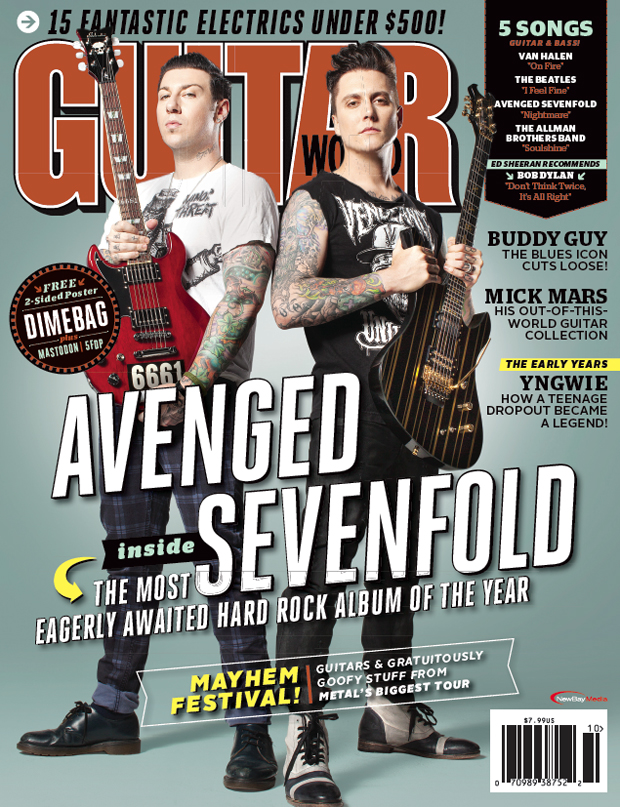
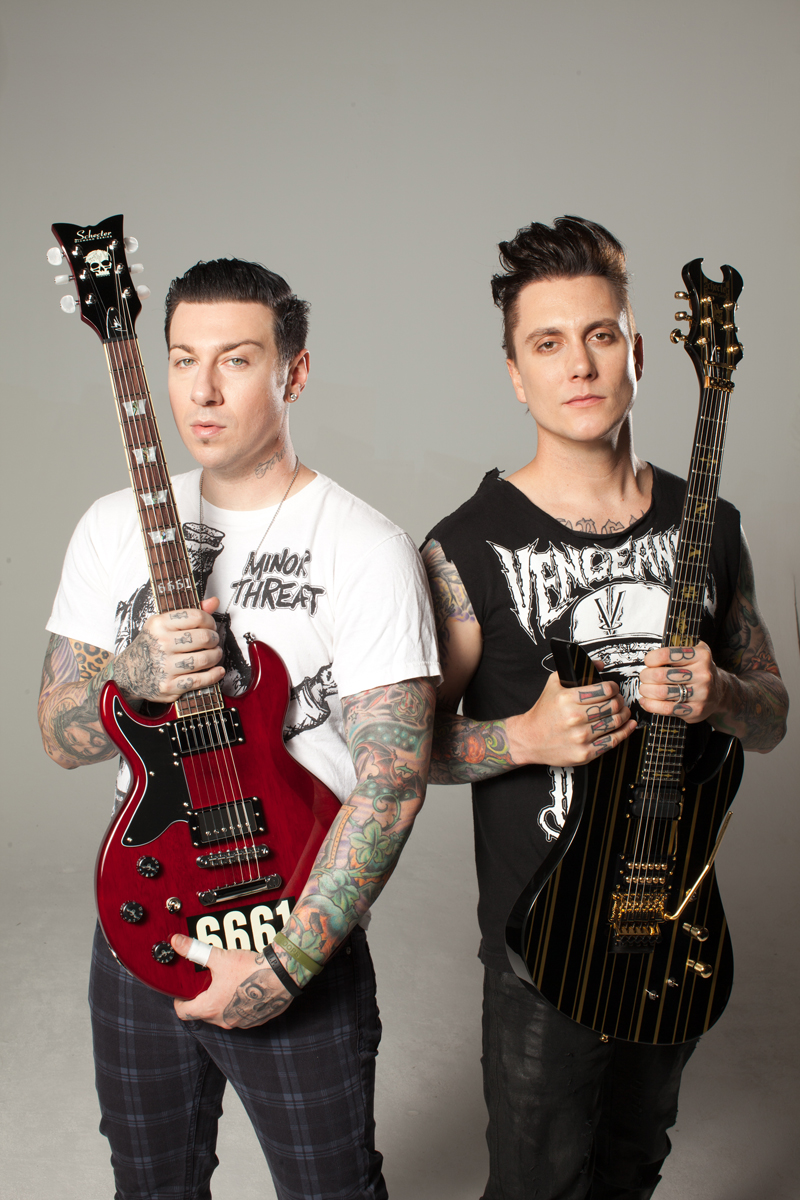
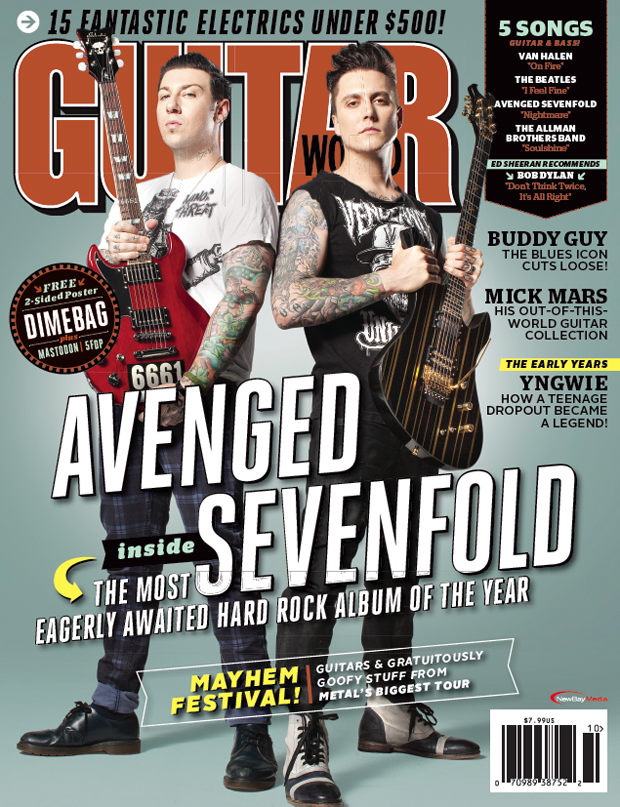
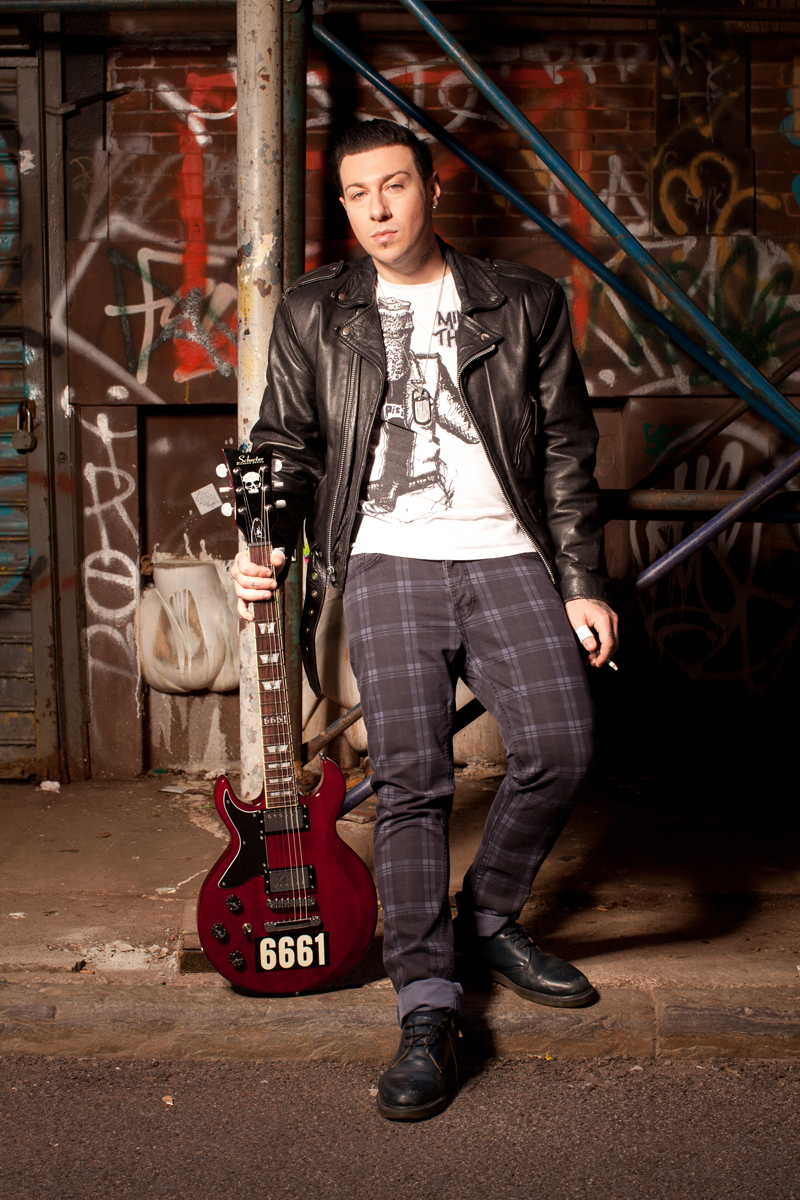
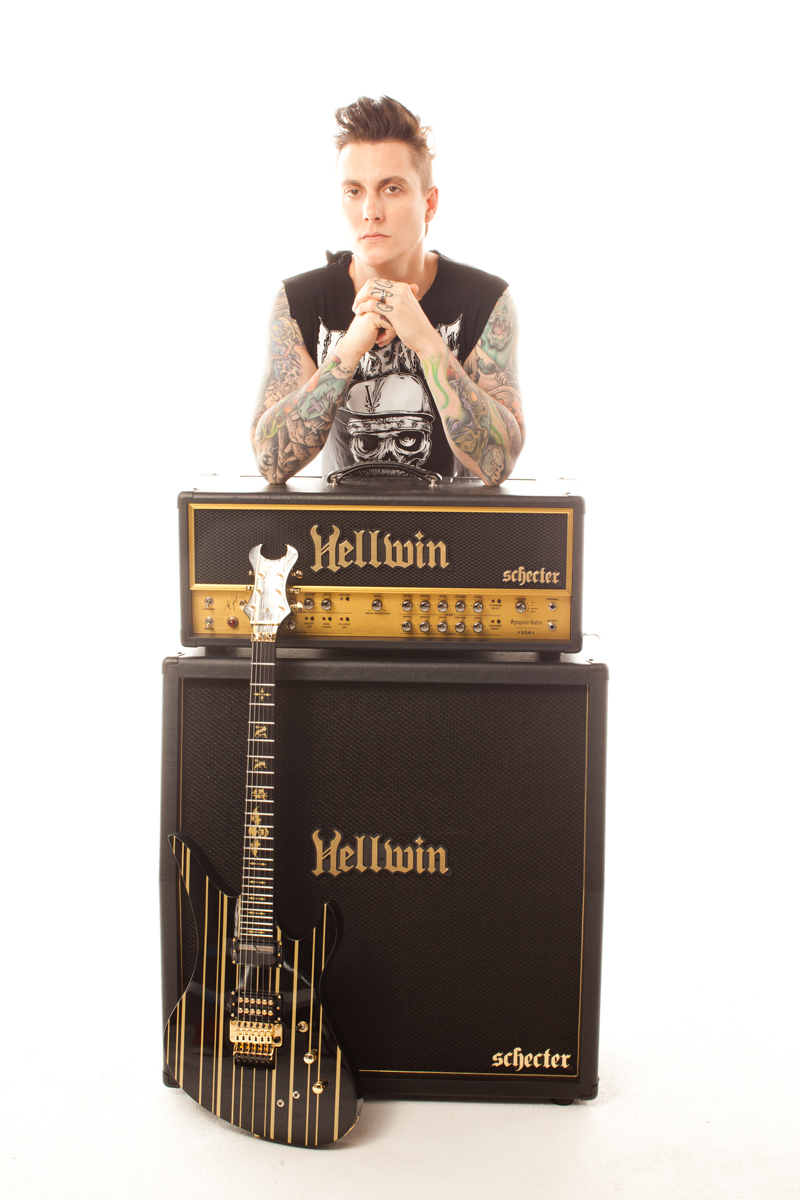
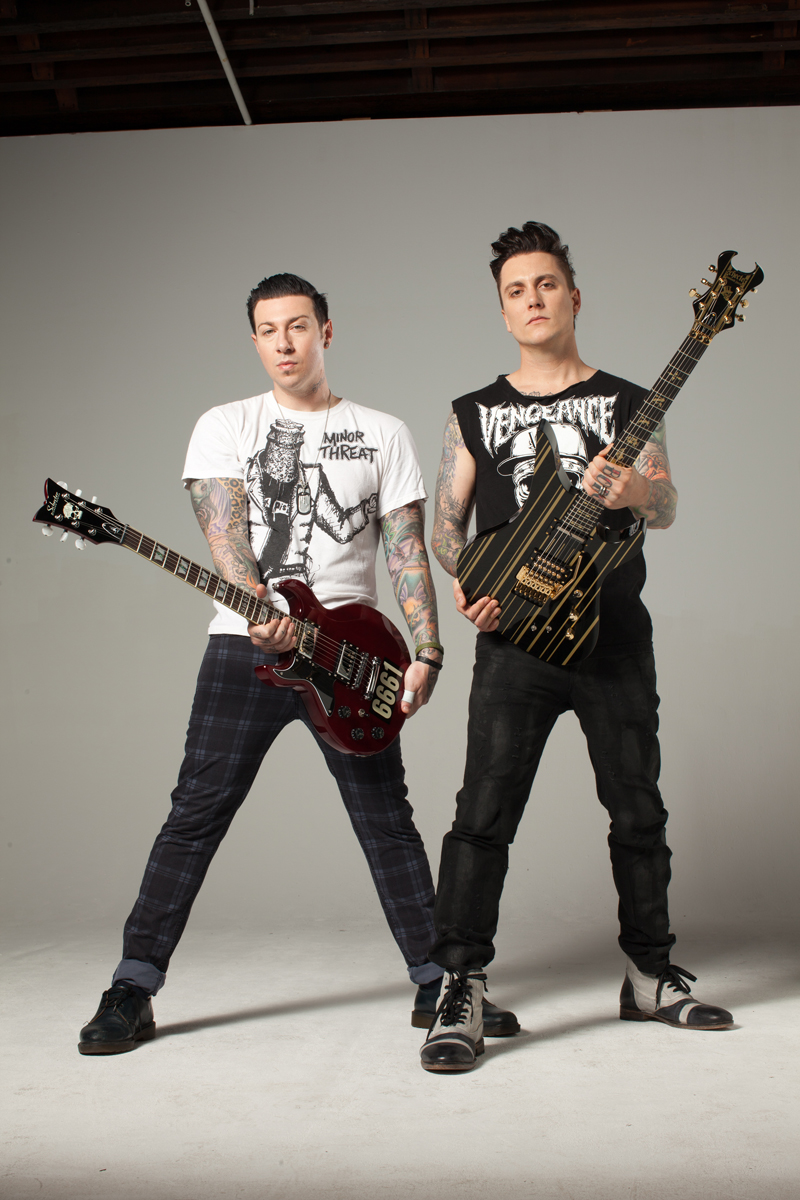
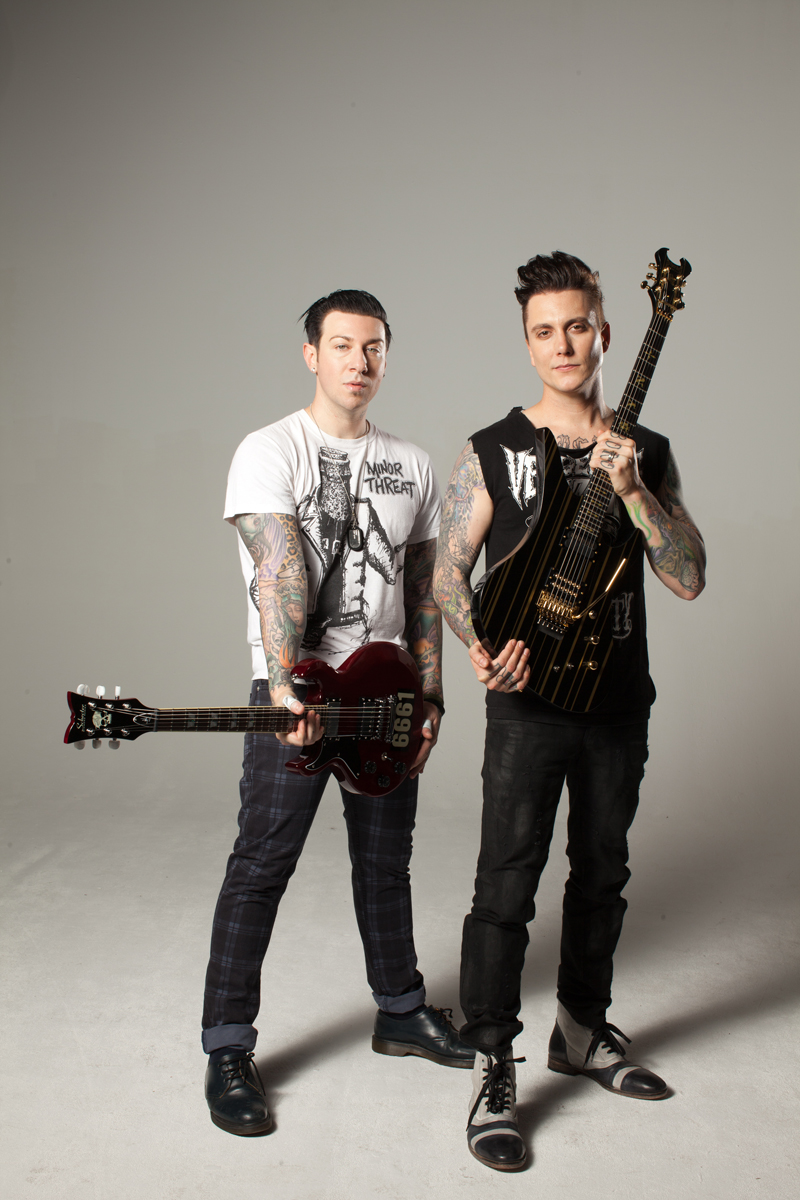
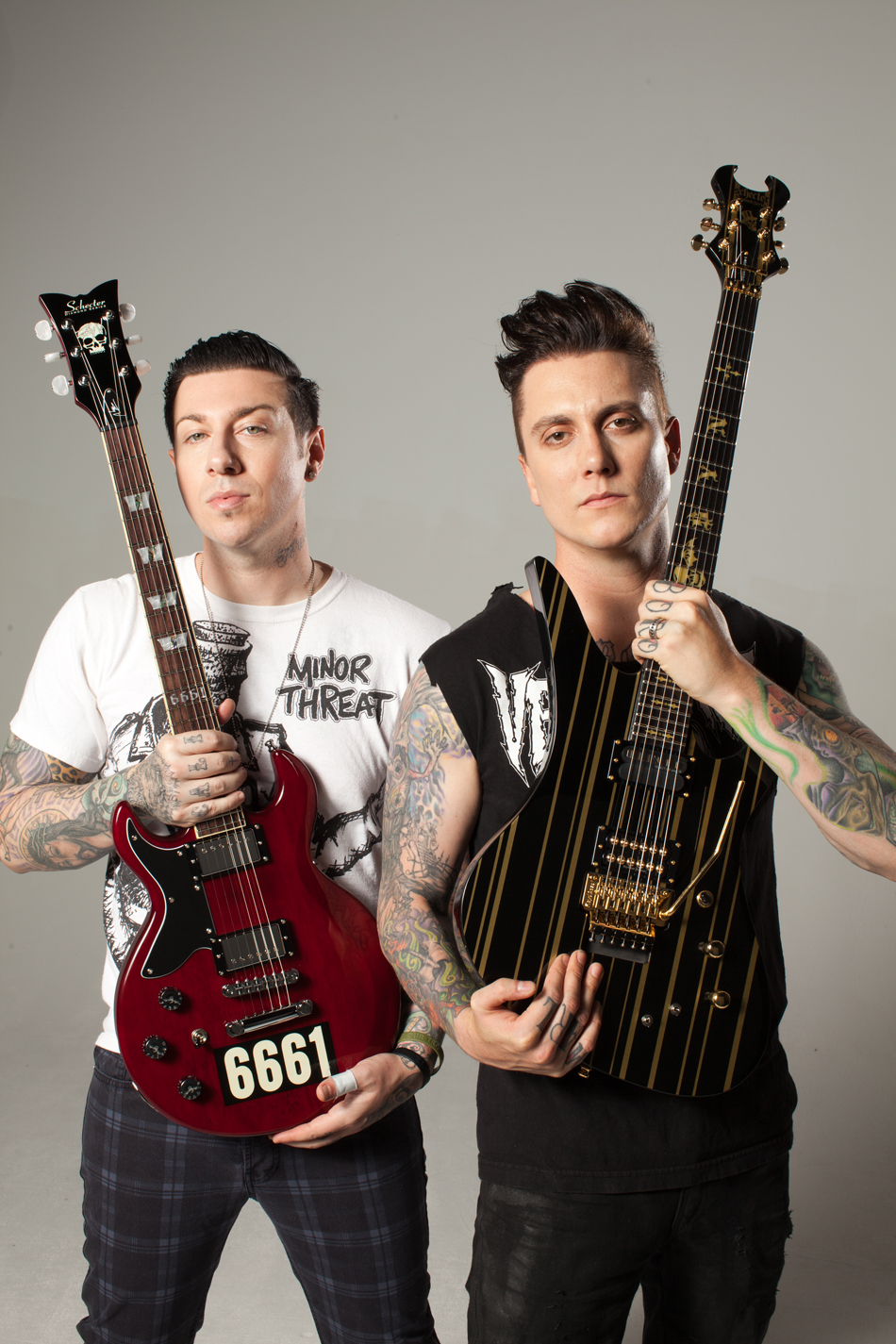
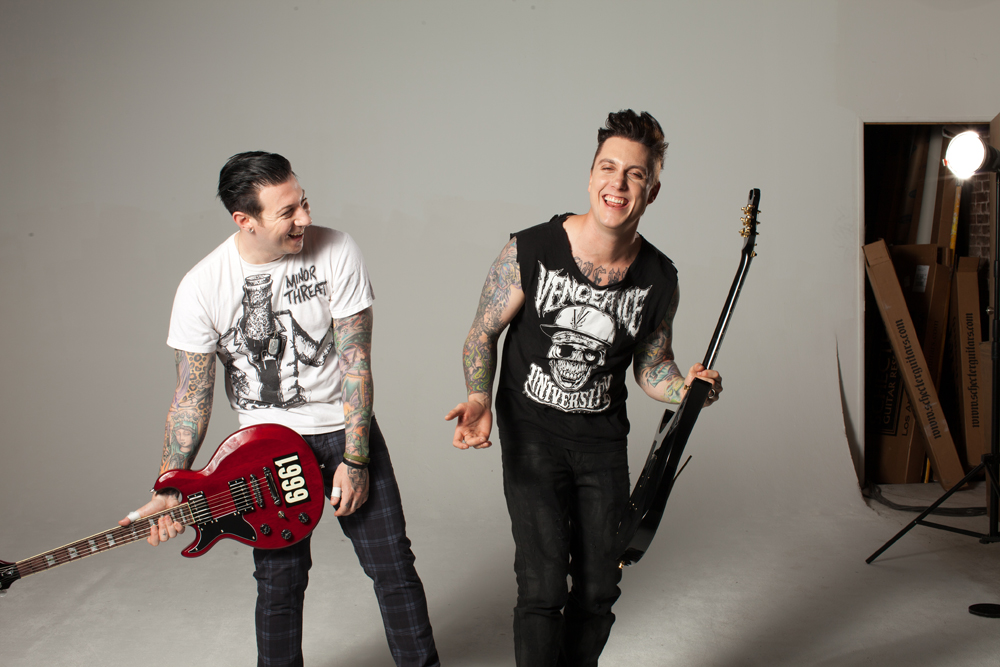
Rich is the co-author of the best-selling Nöthin' But a Good Time: The Uncensored History of the '80s Hard Rock Explosion. He is also a recording and performing musician, and a former editor of Guitar World magazine and executive editor of Guitar Aficionado magazine. He has authored several additional books, among them Kurt Cobain: Montage of Heck, the companion to the documentary of the same name.

